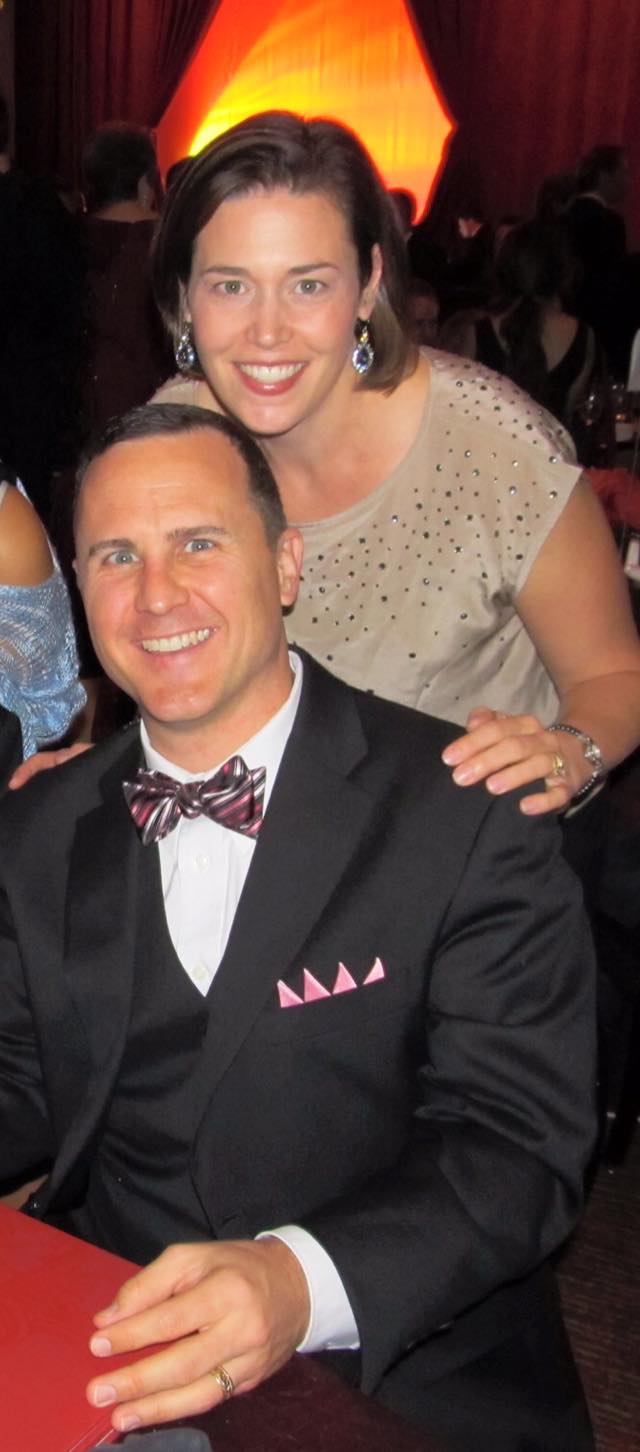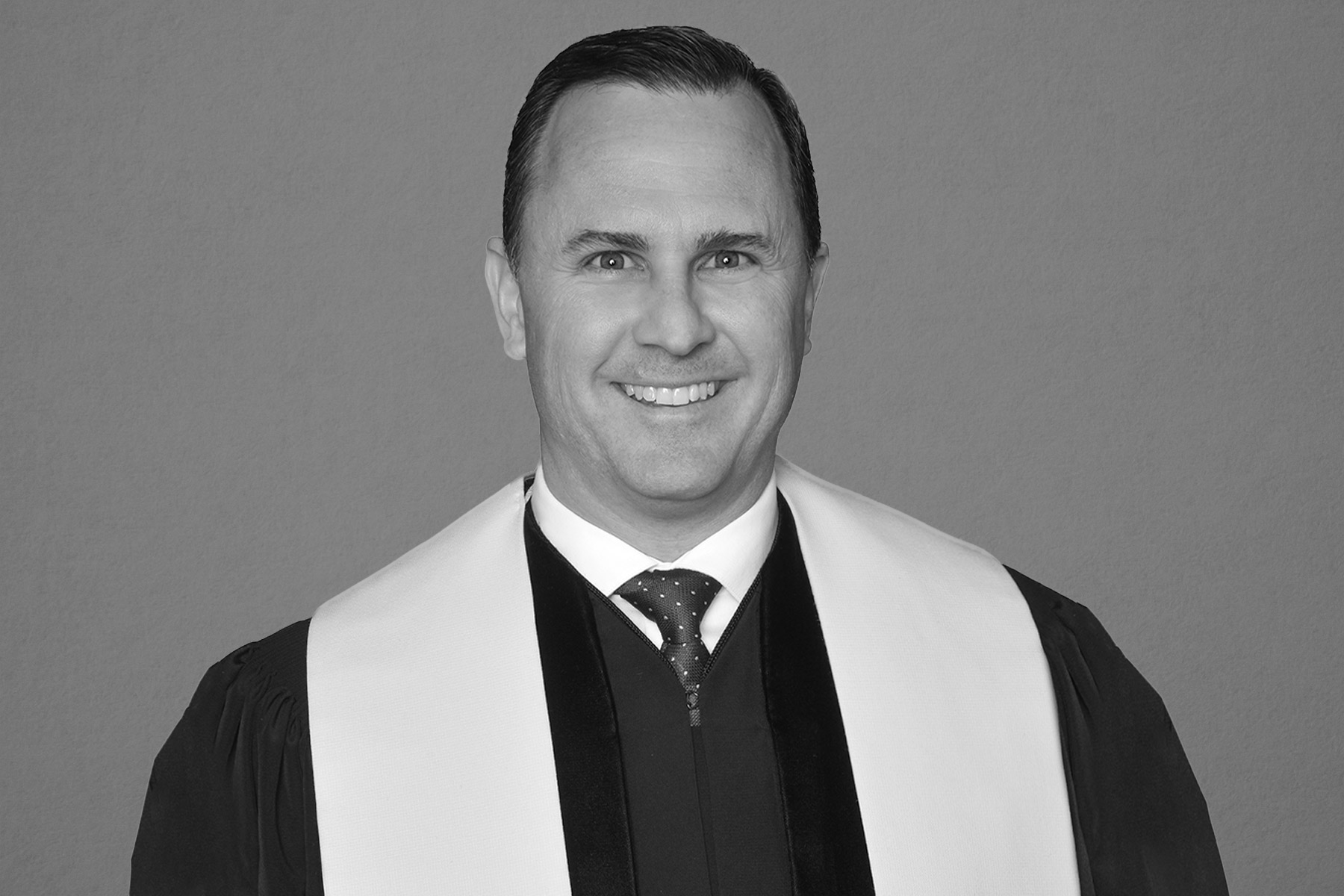I always enjoy talking with the Reverend Dr. Andy Stoker, because he is—even among the various clergy members I have become acquainted with over the years—a bright light. Quick with a smile, quicker with a laugh, there is an easiness to being around him that I’m sure has brought comfort to his congregation and colleagues and fellow clergy in these past few weeks.
He is seeing the current pandemic through various lenses: besides being a pastor, his wife, Megan, is a nurse at Children’s Health and his elderly parents—fairly recently moved to Dallas—are in a nursing home, and then he has two young boys at home. That is a lot of stress, a lot of different varieties of fear. But Stoker is approaching it all with his usual good humor (as well as his journal).
Our lightly edited conversation follows. But first, a prayer.
How has what you do changed with having to, you know, keep your distance? Yeah, I was joking with a clergy colleague at the end of last week, and then I just got out of my staff meeting, and I said, “OK, friends, I didn’t realize what a lazy communicator I was.” I didn’t realize how much I banked on nonverbal communication. Like I just, you know, everybody knows that 70 percent of what you communicate is nonverbal.
Sure. Well, on the Zoom call, in my case, you’re only seeing a third of my body. My taller colleagues, like Omar [Suleiman], you can see maybe 10 percent of his body, which is nice, but you see a third of my body. You don’t—you’re not seeing my hands. You’re not seeing that I’m focusing my attention on you, or that I’m moving closer to you when you’re speaking. I mean, all of that is missing.
So I’ve had to be really, really mindful of how I’m using words and all of that good stuff. So, yeah, it’s changed pretty dramatically. Not being able to see my beloved in hospital who are sick. I mean, that’s been—that’s heart wrenching. People are still doing surgeries that they need. People are still going to chemotherapy treatments and part of my job is to embody love and it’s, you know, so “How do we offer disembodied love in this season of social distancing?” has been my constant question. So yeah, it’s, it’s changed dramatically. Preaching to an empty building is also is also interesting.
Oh, I can imagine. As maybe you know, folks who are camera operators aren’t all that interested in how clever you are with your phraseology on a really important scripture exegesis. [laughs] But other than that, I mean, altogether—my wife’s a nurse, Zac, so altogether I’m trying to bring levity to much of what I do. And I think our boys are about the same age, but I have a 17-year-old on Friday. And an 11-year-old. How old is your son?
He’s going to turn 16 on Wednesday. Yeah, I remember that they were about the same age.
Yeah, pretty much. Anyway, long story short, trying to bring levity to this situation is part of—I don’t know if it’s a spiritual gift or a defense mechanism, I can’t figure out which; don’t ask Omar [laughs]—but yeah, it’s a trying season and I have an amazing staff. I have an amazing congregation that is doing what they can do to reach out to people they haven’t seen in a while. I mean, this crisis has brought out some of the best of who we are as people and that’s what I’m really leaning in on and trying to find joy in that. And it’s still a world that is suffering and trying to make sense of, of what’s going on.
Has there been a particular verse or passage in the Bible that you’ve been turning to over these last few weeks? Yeah, I, you know, it seems a little trite, but there are 365 passages in the Bible that basically play with one phrase. And that one phrase is: do not be afraid. And Isaiah 41:10 is one that has really captured my mind and heart and being in this time where a people who are in exile all over again need to hear a word.
And the word from God is: do not be afraid. We live in a time—we live in a culture—that is made and banked on fear. And our faith says fear is not the end. Fear is when we get off-track. That’s what makes us afraid. And so delving more deeply into love and light into our common purpose together is really what’s helping me focus on not fear but community and compassion and justice. And I’m concerned about people who are losing jobs, concerned about my family who my mom and stepdad live in a nursing home. My constant message to them is, I know it’s hard.
I know you have a sense of fear. The promise of God is that God will never leave us and that we ought not fear because God is with us, always. And that’s where I’m shouldering on as best as I can, with those passages in a myriad of ways in the Hebrew scriptures and the Christian scripture, and even in the Holy Quran—this is the message from God: do not be afraid.

Where is your wife a nurse at? She works at Children’s Health.
So how overloaded has she been during all this? Frankly, I’ve never experienced her stress level at this height. You know, it’s a high-pressure job, being the children’s hospital for the county, right? But she’s worked there for 22 years and this is one of the most difficult times. Her main job is to be the one who is steady and focused. And what we’re hearing about a lack of supplies or not knowing how long the gestation period is on the virus or not—I mean, the world of unknowing just unsettles that steady leadership that she offers so beautifully. So it has been a difficult three weeks.
She’s picked up some extra shifts along the way to help out some other colleagues that are in that vulnerable population—older adults or caring for older adults or vulnerable children. So, yeah, it’s been a difficult season.
How do you relieve your stress? You have to be strong for your wife, strong for the kids, strong for the congregation. What outlet do you have for bearing up under all of this? I’ve actually increased my daily practice. I started the daily practice of meditation in the morning and I’ve increased that in the mornings.
And then I’ve added a practice that I didn’t think I wanted to until all this started. [laughs] But I’ve added, in the evening, about 30 minutes of journaling. Just sort of figuring out what’s in that subconscious/unconscious and allowing whatever’s working on me to come out so I can see it consciously and deal with it. It’s been my belief for a long time that once we name something, we can then deal with it.
So journaling for me is about naming: Oh, that’s what’s coming up in me. Jeez, now it has a name. Now I can deal with it. And I know that, you know, people of faith for eons have—this has come up for them. And so my recipe book is out there. Looking at a variety of scriptures, refocusing my attention on what, what makes me a husband, a father, a pastor. And my parents moved to Dallas, Zac, about two years ago. And so what it means to be a son, now, all over again, after living apart for 25 years in a different city.
It’s a different dynamic. Yeah, so I’m not gonna lie to you this morning and say, Hey, it’s all great. Everything is Skittles and unicorns here. That’s not what I’m saying. I’m taking deep, deep breaths these days and trying to figure out what’s my next best decision in the moment I’m given.





